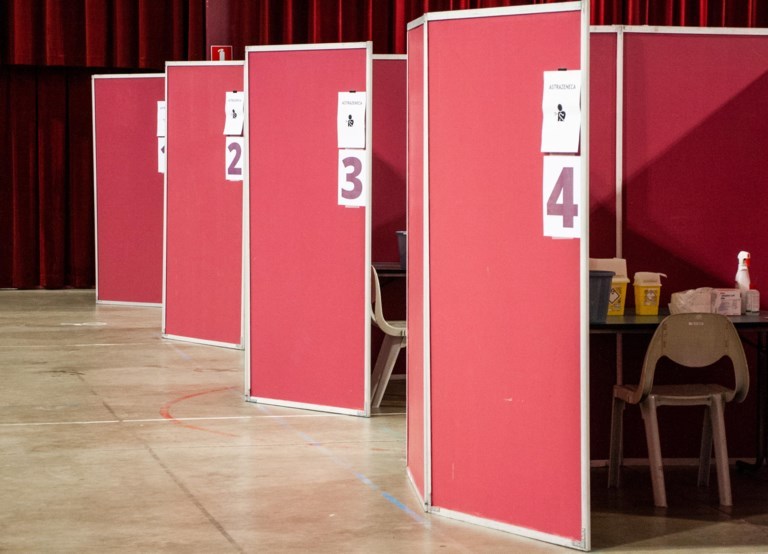As Belgium administered its fourth million coronavirus vaccine on Tuesday, the country has also risen to third place in Europe's ranking for most administered first doses so far.
With this latest milestone, the vaccination campaign in Belgium has reached cruising speed, according to Gudrun Briat of the Vaccination Taskforce.
"According to European data, Belgium is now in third place among the European countries with the highest number of first doses per number of inhabitants," she said during a press conference on Tuesday.
This means the country has risen two places compared to Thursday 29 April, when it ranked fifth in Europe, according to the European Centre for Disease Prevention and Control (ECDC) vaccine tracker.
On Tuesday 4 May, however, the tracker shows that Belgium is still in fifth place (31% of the adult population having received a first dose), but this is because there currently is a one-week reporting delay of the number of doses administered, according to the country's disclaimer on the ECDC's website.
According to the tracker published by the national health institute Sciensano, which is updated more regularly than the ECDC’s one, 34.1% of the adult population in Belgium has already received its first dose.
Hungary is currently in first place in Europe as it vaccinated 48% of its adult population at least once, with Malta following close after with 47.1% of adults having received a first dose.
Related News
- Belgium in 5th place in Europe's vaccination ranking
- 'Against discrimination laws': experts worried about Belgian 'corona pass'
- ‘Same storm, different boat’: Covid-19 as an occupational hazard
"To give the first two million vaccines, we needed three months, which was the whole first trimester. But the last two million shots were given in just under a month," Briat said, adding that there is still work to be done.
"We want to fully protect as many of our country's inhabitants as possible, meaning we need to give them two doses," she stressed.
Starting from this week, the number of fully vaccinated people (who received two doses) should be boosted. This is partly thanks to the Johnson & Johnson vaccine, which only requires one shot, and partly thanks to AstraZeneca's vaccine, as those who received their first dose three months ago will soon get their second shot.
"The vaccination campaign will now shift into a higher gear. In April, we had an average of 400,000 vaccinations per week, in May this number should increase to 600,000 to 700,000 vaccinations per week," Briat said. "And in June, we expect an even greater increase, with an average of 900,000 to 1,200,000 weekly vaccinations."
Because of these encouraging figures, the Taskforce can also predict that Belgium will reach a 70% vaccination coverage (when 70% of the adult population will have received at least one dose) before the end of July.
"This timing fits well with our original planning at the launch of the campaign," Briat said, adding that achieving this timing still depends on three important conditions.
"The vaccines must be delivered, the rules to administer them must not change, and the willingness of the population to be vaccinated is also a very important factor, which is gaining in importance now," she added.
"Achieving the 70% vaccination rate (the threshold considered high enough for herd immunity) over the course of the summer is possible, but the more people get vaccinated, the sooner we will reach this goal," Briat stressed.
"Vaccination not only gives you the best protection against Covid-19, but it is also the best way to regain your freedom."

